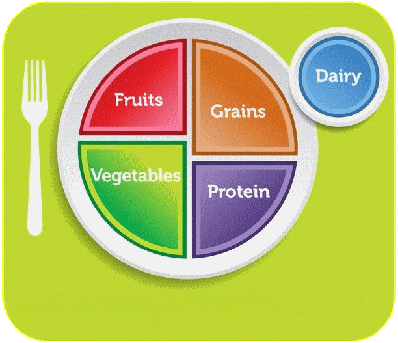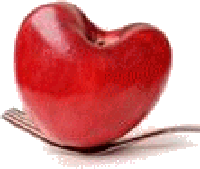|
From an athlete's point of view, there are several facets of the nutritional element including fluid consumption. Bowling is just like any other sport. To maximize your performance you must be in top condition, and a good diet is an important aspect of this.The best nutritional advice is to eat a healthy, well balanced diet. The challenge is to find the healthy food. The answer is in the planning. Plan and prepare, and eat about 2 hours prior to bowling. You should eat when you are not hungry and not filled. During bowling you can rely on light snacks such as fruits and protein bars for energy, and water to keep hydrated. Think of your body as an engine, and food as its source of fuel. As the engine runs, fuel is converted to operate it in a manner that is efficient and effective. Food and fluid provides your supply that can provide a high energy value when planned well. The more active your engine, the more fuel you expend, the more refueling required. If your engine runs low and then out of runs out of energy, there is a resultant decline in efficiency and eventually stops running. The same is true for the human body, although it is a bit more complicated than the family car. Just as a car operates better with a regular oil change and premium gas, the human body functions more efficiently when fueled by the proper energy source. Your body requires a specific type and amount of fuel. Peak athletic performance is contingent upon an ample, but not an over abundant supply of fuel. With it, you can assure yourself the likelihood of maintaining a well-oiled and supercharged engine. A decline in required energy will trigger a diminished level of performance. What Kind Of Energy Do I Need?
You do not want to "run out of gas" at the middle to end of a game. |
All food products contain calories. Protein, carbohydrates, and fats all have a certain amount of calories, however the type of calorie is the distinct and unique difference between the three. Some types of calories, protein for example, are used to repair musculoskeletal tissue after training or injury. Others like carbohydrates and fats are used as the energy sources to fuel activity. Therefore, the right kind of calorie, and not just the amount, is also an important consideration. Carbohydrates: Your Ideal Energy Source One food source highly recognized by sport nutritionists and sport trainers is the carbohydrate (carbs). Carbohydrates provide the HIGH OCTANE ENERGY needed to compete, train, and recoup. Carbs are the energy we need to bowl and strike. Carbs are simply the energy used to fuel bodily movement. That's right. While protein, water, vitamins, and minerals have their own responsibilities, carbs are the driving force behind our every movement. Carbs can be found in many foods, and are organically arranged into two forms, simple sugars and complex carbs. Simple sugars, the smallest carbohydrate, are really nothing but sugar found in certain foods. They are a form of short term energy source used immediately by the body. Simple sugars are usually found in sweet fruits, candy, and those addictive snack cakes sold in many bowling centers. Simple sugars are merely the sweet taste in just about every product we crave. Do you like cookies, candy, snack cakes, etc. Instead of a sweet tooth, most of us have a sugar tooth. Now, completely opposite of those sweet simple sugars are complex carbohydrates. They are the unsweetened carbs. No real distinct sweet taste to 'em. They are in essence multiple carbohydrates (known as starches), bonded together in a complex manner. More importantly, they are your long-term source of energy. That's right, they are the energy we need to bowl longer and stronger. You can find complex carbs in starchy foods such as pasta, breads, cereals, grains, vegetables, and some fruits. Processed foods also contain some complex carbs. Most often, processed foods are a mixture of both types, and are often deficient in nutritional value and are not highly recommended. For example, potato chips contain carbs, but they are loaded with fat, thereby classified as junk food, empty calories, or even low-nutrient-density foods. According to the American Dietetic Association, at least 60% of an athlete's caloric intake should come from foods containing carbs. Other sports scientists believe for optimal performance, carbs can account for up to 70%. Here and now, What To Do? Now how can you use them to your advantage? 3-5 Hours Prior to Bowling
2-3 Hours Prior to Bowling
During-1 Hour Prior to Bowling
|
|||||||||||||||||||||||||||||||||||||||||||||||||||||||||||||||||||||||||||

 You fueling
needs are really
quite simple.
You need
carbohydrates,
fats, protein,
and plenty of
water. Those are
the only four
types of fuel
you need,
nothing more and
nothing less.
Although you do
require other
nutrients, such
as vitamins and
minerals, which
end up assisting
all the
wonderful
chemical and
cellular
reactions
occurring every
second inside
your body. These
are found in the
foods and
beverages you
consume. Think
back to the
previous
analogy. If the
body is an
engine and food
is the fuel,
carbohydrates,
fats, protein,
and water are
the rich mixture
of gasoline,
while vitamins
and minerals are
the spark plugs
that keep the
engine running.
Take away any
one, and
disaster is
imminent. Have
them in place at
all times, and
your PERFORMANCE
POTENTIAL is
MAXIMIZED.
You fueling
needs are really
quite simple.
You need
carbohydrates,
fats, protein,
and plenty of
water. Those are
the only four
types of fuel
you need,
nothing more and
nothing less.
Although you do
require other
nutrients, such
as vitamins and
minerals, which
end up assisting
all the
wonderful
chemical and
cellular
reactions
occurring every
second inside
your body. These
are found in the
foods and
beverages you
consume. Think
back to the
previous
analogy. If the
body is an
engine and food
is the fuel,
carbohydrates,
fats, protein,
and water are
the rich mixture
of gasoline,
while vitamins
and minerals are
the spark plugs
that keep the
engine running.
Take away any
one, and
disaster is
imminent. Have
them in place at
all times, and
your PERFORMANCE
POTENTIAL is
MAXIMIZED.